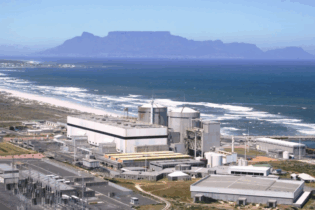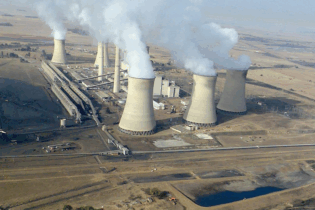A recent report in the Intergovernmental Panel on Climate Change (IPCC) revealed that South Africa is responsible for the majority of African’s carbon emissions as a result of its coal-intensive energy production.
The report notes however, that South Africa has the infrastructure and expertise available to climate proof itself in order to lower its carbon emissions.Average temperatures across South Africa will increase by 2ºC along the coast and 6ºC inland by the end of the century if no action is taken to combat this. According to Arthur Chien, Vice President of Talesun Energy, the on-going and unrestricted burning of fossil fuels is one of the major causes of climate change, and it should therefore be in the interests of South Africa’s public and private sectors to reduce carbon emissions in order to offset the effects of global warming in the country. He notes however that through the implementation of renewable energy strategies, the country can make remarkable advances in decreasing the negative impacts that fossil fuels subject the environment to.
Chien says that the , United Nations scientists reported in its most recent global warming study that the world needs to triple the amount of energy it receives from renewables to avoid dangerous levels of global warming and that countries need to make more of an effort to implement renewable energy projects such as solar parks. Solar instead of fossil
“By making use of photovoltaic solar energy instead of fossil fuels the public and private sector can help alleviate the effects of global warming. Solar energy, which is widely available in South Africa due to the sun producing around 2 500 hours of sunshine each year, has a non-evasive effect on the environment and therefore makes it an appealing alternative energy source.
Al Gore, the former American vice-president and Nobel Peace prize winner, who spoke at the Climate Reality Leadership Corps training in Johannesburg in March 2014, said South Africa, the 31st driest country in the world, is projected to get much drier by 2030 as demand for water exceeds the supply.
A recently released report by the Organisation for Economic Co-operation and Development also reflected that by 2020 80 percent of the world’s population will be living in countries where solar electricity is cheaper compared to fuel produced from coal and other sources.
He agrees with UK climate change expert, Sir David King, who says that the decreasing solar photovoltaic prices will prove to be an advantage for South Africa, particularly as the cost of installing PV has come down by a fifth of the price in the last 10 years.
“Installing PV during these price drops will help the country deal with its current electricity shortfalls, while also lowering its carbon emissions,” concludes Chien.







